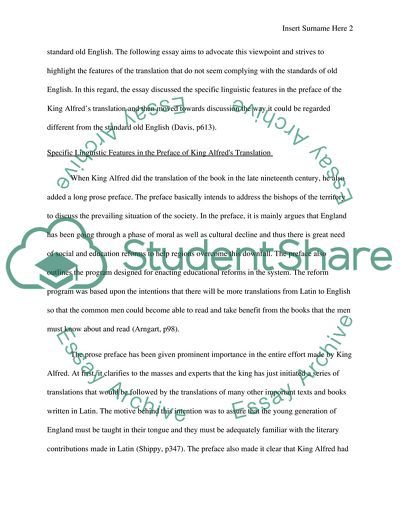Cite this document
(Difference between Features of Alfred Translated Language and Standard Term Paper, n.d.)
Difference between Features of Alfred Translated Language and Standard Term Paper. Retrieved from https://studentshare.org/english/1732562-specific-linguistic-features-in-the-preface-of-king-alfreds-translation-of-gregorys-pastoral-care-to-what-extent-differs-alfreds-language-from-the-standard-old-english
Difference between Features of Alfred Translated Language and Standard Term Paper. Retrieved from https://studentshare.org/english/1732562-specific-linguistic-features-in-the-preface-of-king-alfreds-translation-of-gregorys-pastoral-care-to-what-extent-differs-alfreds-language-from-the-standard-old-english
(Difference Between Features of Alfred Translated Language and Standard Term Paper)
Difference Between Features of Alfred Translated Language and Standard Term Paper. https://studentshare.org/english/1732562-specific-linguistic-features-in-the-preface-of-king-alfreds-translation-of-gregorys-pastoral-care-to-what-extent-differs-alfreds-language-from-the-standard-old-english.
Difference Between Features of Alfred Translated Language and Standard Term Paper. https://studentshare.org/english/1732562-specific-linguistic-features-in-the-preface-of-king-alfreds-translation-of-gregorys-pastoral-care-to-what-extent-differs-alfreds-language-from-the-standard-old-english.
“Difference Between Features of Alfred Translated Language and Standard Term Paper”, n.d. https://studentshare.org/english/1732562-specific-linguistic-features-in-the-preface-of-king-alfreds-translation-of-gregorys-pastoral-care-to-what-extent-differs-alfreds-language-from-the-standard-old-english.


